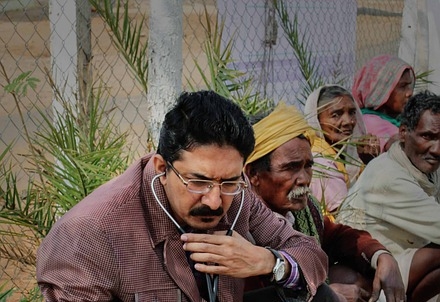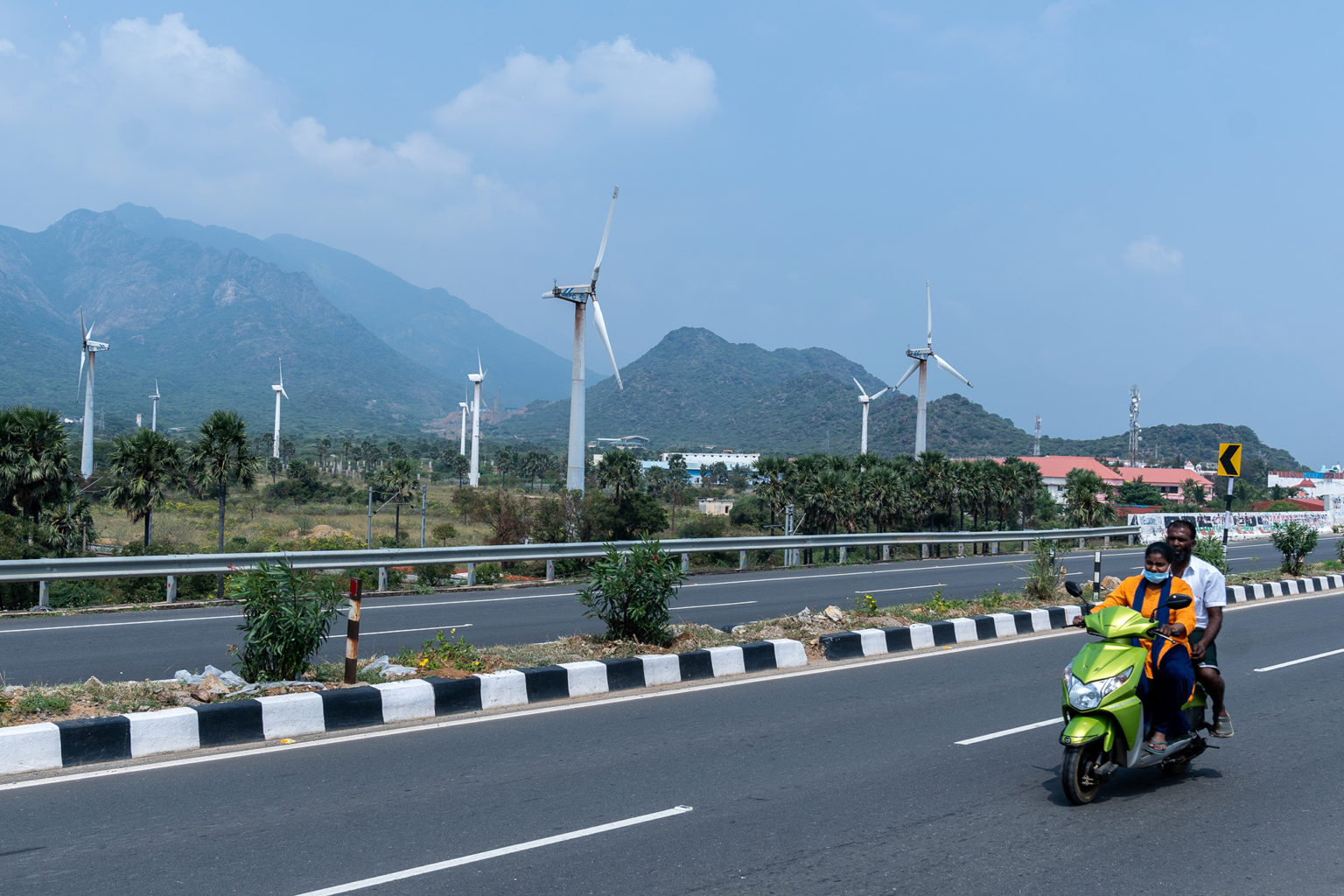Last November, the Bangalore city police booked a case against three citizens, charging them for assaulting a traffic police officer. The main accused was Amulya Somashekhar, a volunteer of the civil society movement India Against Corruption (IAC). Amulya, her mother and friend were charged. Amulya, in turn, said that the officer had assaulted her for refusing to pay a bribe.
The local IAC volunteers asked for an independent inquiry, only to realise that there was no independent body which accepts complaints against the police. The police, instead, were preparing to conduct their own internal inquiry into the matter.
It was in 2006 that Supreme Court ordered that every state and district should have an independent authority to handle citizens' complaints against the police. This body, named Police Complaints Authority (PCA), is to be headed by a retired judge and can hold hearings on allegations of police misconduct and atrocities. Its final order would be binding on state governments. Karnataka still does not have a functioning PCA; although the government has - under pressure to comply with the SC order - appointed a head of the Authority, it does'nt have any staff or office yet!
Other than setting up PCAs, the SC ordered six key measures for police reform, in its 2006 judgment in Prakash Singh Vs Union of India. The reforms include establishing minimum tenure for senior officers and a procedure for appointing DGPs, setting up a body to make policy decisions on policing, and another to decide on promotions etc., so that political interference decreases in routine police work. Since police is a State subject in the Constitution, the states were supposed to bring these reforms.
Around the same time as the SC order, the central government-appointed Soli Sorabjee Committee prescribed a Model Police Act for states to follow. This committee was among the many that successive governments had set up since 1977 to recommend police reforms. Most states were following the archaic Police Act of 1861. The new state Police Acts were to have provisions for PCAs as well.
Only a few states have Police Acts now; those that have PCAs are even fewer. Six years after the SC order, only six states have PCAs - these are Assam, Haryana, Tripura, Uttarakhand, Goa and Kerala. Of this, only Kerala has district-level PCAs, in addition to a state-level PCA. Meanwhile, cases of illegal detention and custodial torture by police continue to be reported across the country.
Five Union Territories - Pondicherry, Chandigarh, Delhi, Daman and Diu, Dadra and Nagar Haveli - also have PCAs. Of these, Chandigarh's has been the only well-functioning PCA. Pondicherry's PCA has been defunct since its Chairman's retirement in June 2011. Delhi does not have a separate PCA; instead its existing Public Grievance Commission (PGC) - an independent body that accepts complaints on all government agencies - was given additional responsibility as a PCA. A single PCA has been set up for both Daman and Diu, and Dadra and Nagar Haveli.
Existing PCAs ineffective
State governments have done much to tweak the composition and powers of PCAs. The court order had clearly prescribed how PCA members should be selected, and how investigations should be carried out in response to complaints.
Each PCA is to be headed by a retired High Court/Supreme Court judge, selected by the state government from a panel suggested by the serving HC/SC Chief Justice. Other members should be similarly selected from among members recommended by the State Human Rights Commission, State Public Service Commission, or Lokayukta. Appointments should never be done directly by the state government.
But so far, all state governments have made only direct appointments, which are perceived as political appointments. The directions on the composition of the PCA have been blatantly ignored, like in the case of Haryana, where the PCA has only a single member, the Chairman, who is a retired IAS officer.
PCAs are supposed to have only one retired IAS and IPS member each, and no serving officers are allowed. But Kerala state PCA has two serving officers - Principal Secretary and Additional DGP - as members. Its district PCAs have the Collector and district SP as members. Having serving officers, especially from the police, defeats the purpose of an independent, approachable public authority. It also violates the court's order that all members should work full-time for PCAs.
In the case of Kerala and Haryana, the violation of the court order is written to the state laws itself. Their state Police Acts prescribe the current composition. Tripura Police Act has followed the SC order in principle, but violated it in practice. Tripura has two retired police officers in its PCA, as opposed to one such officer allowed as per the Act. Goa is yet to its Police Act; the PCA in that state was set up based on a Government Order.
The SC order also prescribed that at least one member in the PCAs should be a woman. But only four PCAs - Uttarakhand, Pondicherry, Tripura and Chandigarh - have women members. This is as per the NGO CHRI (Commonwealth Human Rights Initiative), which was an intervener in the Prakash Singh case, and has been following up on the SC order implementation.
Another problem that makes PCAs ineffective, is the investigation process. Only Assam has its own independent investigators, as mandated by the court order. All other PCAs forward complaints to the police department, asking it to investigate its own officers. Most complaints  are on illegal detention, refusal to file FIRs, custodial torture, filing of false cases, and extortion. The CHRI report says that many complainants reported being threatened by police, on filing the complaints.

Often police officers do not attend hearings, and cases may lag for years.

•
Unwilling to relinquish control
•
Myths about police work
•
To serve and protect
"Police Acts/GOs have no provisions for independent investigators. So PCAs cannot demand these from the government," says Devika Prasad, Senior Programme Officer for police reforms at CHRI.
PCAs also have no power to take action against police officials who do not cooperate. Often police officers do not attend hearings, and cases may lag for years.
Hardly any police officers punished so far
The number of complaints to PCAs is high, but action against officers is rare. In many cases where PCAs ordered punitive action, the order was ignored by the government. PCAs can order either a departmental inquiry or filing of FIR against officers, and government is bound to follow this. Governments ignore the order using a provision in State Acts/GOs that allow them to 'disagree' with PCA orders. The Acts say that "recommendations are binding unless the state disagrees with the order."
Devika Prasad says that this loophole is often used. "Even if government disagrees with an order, a departmental inquiry should be held before closing the case. But cases are closed or neglected. There have been hardly any cases in which action was taken," she says.
Chandigarh PCA, one of the more active authorities, had recommended suspension of many officers. According to Chandigarh administration's official website, the PCA received 237 complaints from September 2010 (when it started) till June 2012. It disposed of 204 of these, recommending disciplinary action in 50 cases, against 90 policemen.
But no action was taken against these officers, and a PIL came up for hearing in the Punjab and Haryana High Court this June, saying that the PCA should be given more teeth. At the hearing, Chandigarh Administration clearly responded that PCA was already exceeding its jurisdiction by ordering suspensions and transfers. It said that PCA was only a recommending body, and that government could disagree with its recommendations.
Lack of government support also prompts PCAs to pass weak orders. It took Haryana PCA one-and-half years to pass its first order for punitive action. Most PCAs also choose to recommend departmental inquiry, rather than filing of FIR. Since departmental inquiries are easier to ignore, most have been lagging for years.
There is no clear data on what action was taken on PCA orders; most often PCAs themselves are not kept in the loop. Only Goa PCA has been proactively asking police to submit action-taken reports.
Justice Wilson says that he has recommended action in 10-15 cases since May 2010 (for all seven districts combined), but was not informed of action taken. "I only heard some rumours; Â the concerned officials have not informed me. The problem is that government does not want to take action," he says. Even then, these district PCAs continue to get cases, some of them as much as 30-40 new cases per month.
The CHRI report quotes some complainants as saying that the PCAs'Â weak orders were not worth the risk of complaining against the police, and that such orders would work against them if they went to court later.
No funds, no rules
Many PCAs do not have well-equipped offices, staff or funds. Police Acts and GOs do not mention anything about funding of PCAs, and sometimes no allocation is made. For instance, Kerala's district PCAs still function from the offices of each Collector, who also gives them discretionary funds. There is no state government funding, and the Chairmen are not given vehicle allowance to travel across districts.
Also, the rules for daily functioning of PCAs have not been made, making it difficult for the public to understand or question them. The format for filing complaints, communication on hearings etc., are randomly prescribed. When a case is dismissed, the reason for dismissal is not clearly mentioned in the orders. PCAs themselves are supposed to make the rules and get them approved by government. Only Uttarakhand PCA has sent draft rules to state government so far. PCA sent the draft in 2008, but the government returned them without approval in 2011.
States like Assam and Haryana have laws that make it difficult to file compaints - in these states complainants have to file a sworn statement against the accused, along with a fee. If the complaint is judged frivolous, the complainant can be punished with a fee or penalty.
Other states stuck
According to CHRI, five states - Andhra Pradesh, Madhya Pradesh, Mizoram, Tamilnadu and Uttar Pradesh - have ignored the SC order completely. Others have drafted Police Acts, or passed notifications on PCAs, but will have PCAs with similar problems as the existing ones.
Gujarat PCA, for example, is to have serving police and government officers in state PCA; its district PCAs will have district SPs as Chairmen. Himachal Pradesh's Lokayukta will act as its state PCA.
The Supreme Court had set up a committee earlier to monitor implementation of its order. This committee, headed by retired SC Justice K T Thomas, submitted its final report in 2010. The report blamed states for their unwillingness to set up PCAs. The SC then sent notices to some states asking for explanation. Prasad says that there have been no hearings of late.
Existing PCAs too are facing more hurdles, while some are becoming more proactive. The Goa government now plans to dissolve its PCA through its new Police Bill. The Bill, yet to be passed, says that Lokayukta will act as the PCA. On the other hand, Assam and Tripura PCAs recently published their performance reports. The Tripura authority has outreach programmes now to create awareness. The Haryana PCA has a website and accepts complaints online.
The autonomy and routine functioning of these bodies, as envisaged in the Supreme Court order, remains a distant dream.























